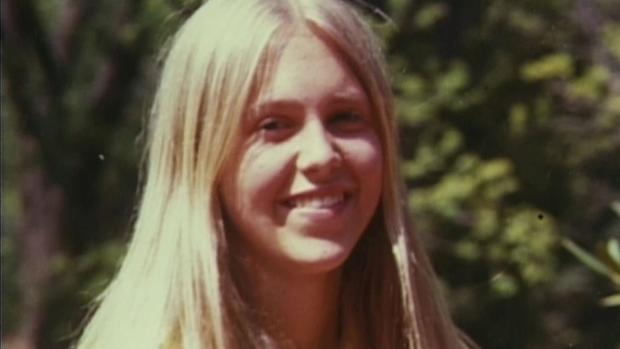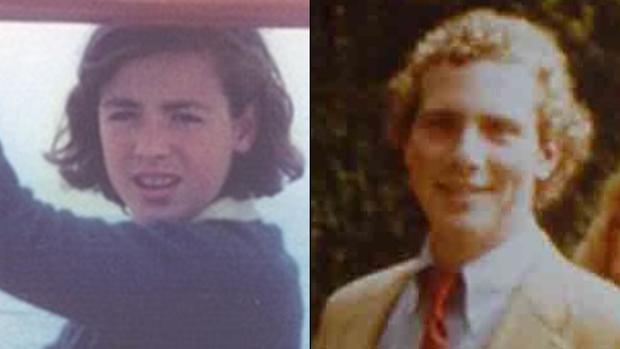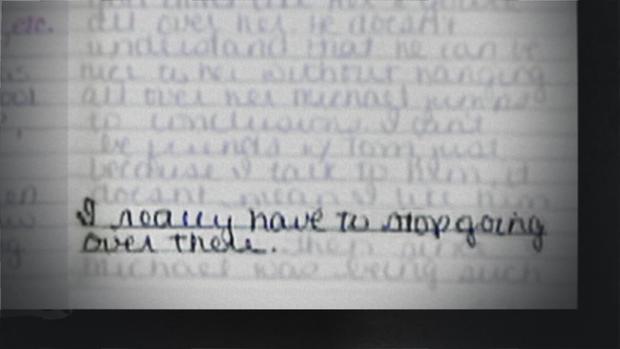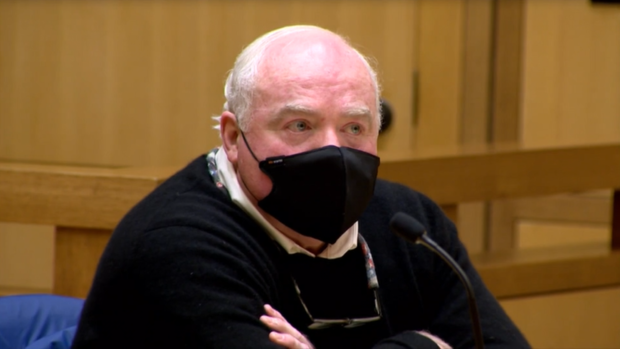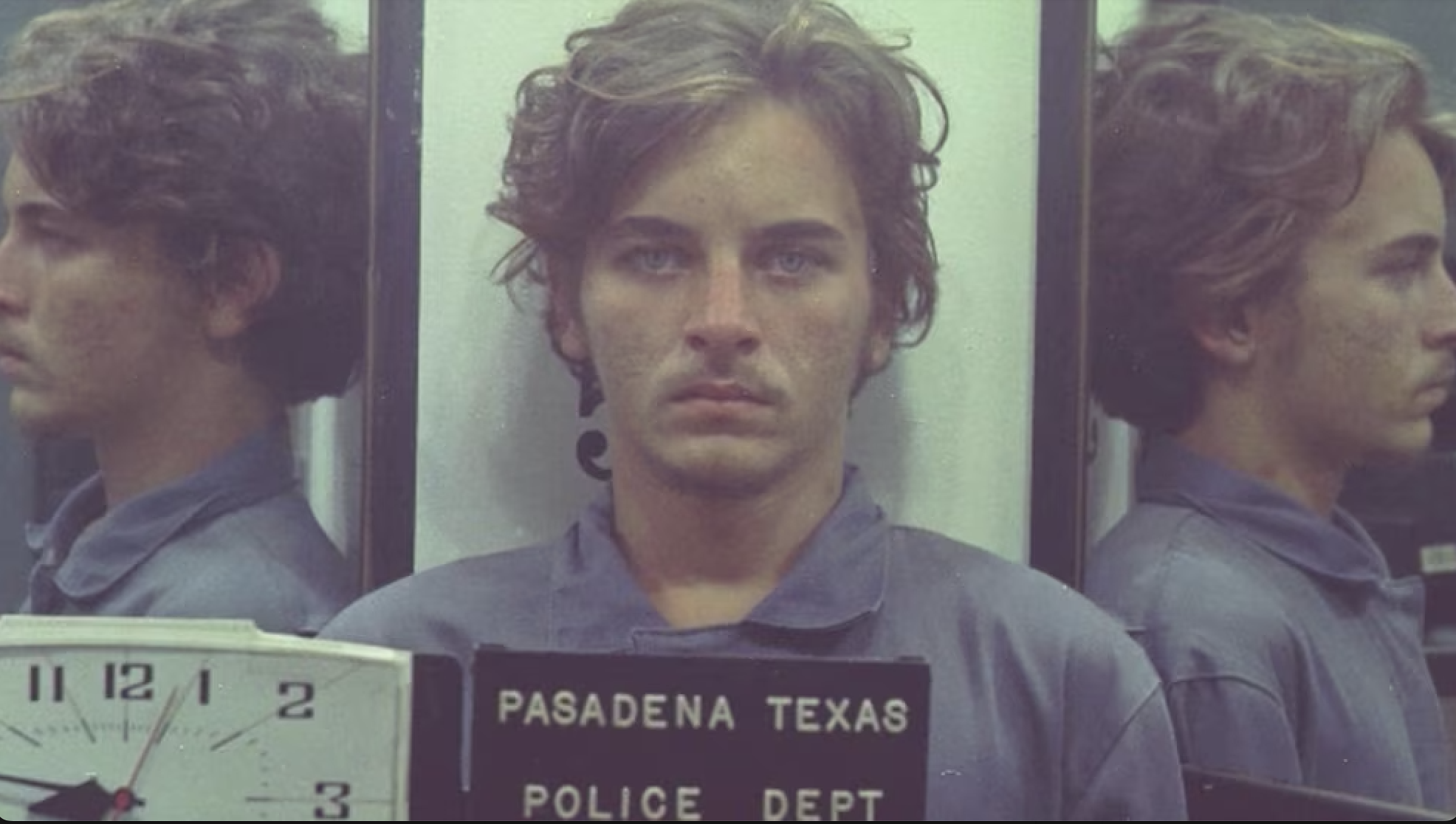Is the clue to finding a killer in the diary of a 15-year-old girl?
By the time Kennedy cousin Michael Skakel was convicted of the murder of his neighbor Martha Moxley in 2002, more than quarter of a century had gone by since Martha's bludgeoned body was discovered under a tree on the Moxley property.
"It was devastating. You have no peace. You've lost it all," Martha's childhood friend Tori Holland told "48 Hours" correspondent Erin Moriarty in "The Diary of Martha Moxley".
On the eve of Halloween in 1975, when Martha didn't return home from a night out in the neighborhood, her mother Dorthy alerted the police and began calling Martha's friends.
"I was getting more and more worried … it just wasn't like her," Dorthy Moxley told "48 Hours."
When Dorthy found out her daughter had last been seen hanging out with their 17-year-old neighbor Tommy Skakel, she called the Skakel house.
"I know I talked to Tommy once or twice, Martha wasn't there," Dorthy said.
The Skakels, relatives of the Kennedys, were one of the wealthiest families in the country. Ethel Skakel, Tommy's aunt, had married Robert Kennedy in 1950.
The Moxleys had moved to Belle Haven from California just a year before Martha's murder. During the final summer of her life, Martha had become friends with two of the Skakel brothers, Michael, who was 15 years old, and his older brother Tommy.
"She was not a wallflower. … She wanted to meet everybody. … She was the California girl of all of us," said Holland.
Martha kept a diary which became evidence after her murder. In her entries, she described her relationship with the Skakel brothers. The month before she died, Martha wrote about going for ice cream with Michael and Tommy: "Went driving in Tom's car ... and I was practically sitting on Tom's lap. … He kept putting his hand on my knee."
Martha's friends told police Tommy wanted to date her, but his advances might not have always been welcomed. On October 4, 1975, a little over three weeks before her murder, Martha wrote: "I went to a party … Tom S. was being an ass. At the dance, he kept putting his arms around me and making moves."
Although Tommy Skakel became a suspect as the last person known to have seen Martha alive, he had an alibi and Greenwich Police Department didn't have enough evidence to arrest him. So, when Tommy's brother Michael Skakel was arrested for Martha's murder in 2000 after reports circulated that he had allegedly confessed to the killing, the story grabbed headlines worldwide.
Michael Skakel was 41 years old when his trial began in June 2002. The state's case hinged on the theory that enraged with jealousy over Martha's relationship with Tommy, Michael had killed her in a drunken rage.
During trial, the state presented Martha's diary as evidence of the rivalry between the two brothers. The month before her murder, Martha wrote "Michael was so out of it, he was being a real ass---- … He kept telling me that I was leading Tom on … Michael jumps to conclusions ... I really have to stop going over there."
After 10 witnesses testified that Michael allegedly made incriminating statements about killing Martha, the jury took four days and found him guilty, sentencing him to 20 years-to life.
After Michael Skakel was sent off to prison in August 2002, his cousin Robert Kennedy Jr. became his staunchest supporter.
"I know Michael Skakel and I know he didn't commit this crime," Kennedy told "48 Hours."
Kennedy insisted his cousin didn't have fair representation at his murder trial, because his attorney Mickey Sherman failed to call a critical witness who would have confirmed Michael's alibi that he was miles away at his cousin Jimmy Terrien's house at the time investigators believed Martha was murdered.
"Mickey Sherman … never talked to that witness," said Kennedy.
In 2013, after spending 11-and-a-half years in prison, Michael Skakel got a huge break when a judge agreed that Skakel's representation had been inadequate and overturned his conviction, granting him a new trial. That decision was ultimately upheld by the Connecticut Supreme Court.
In October 2020, Michael Skakel received another piece of good news when the Connecticut state's attorney announced they would not retry him, saying the state couldn't prove the case beyond a reasonable doubt.
And so, 46 years after her murder, Martha Moxley's case once again goes cold and her childhood friends have little hope that her killer will one day be brought to justice, unless somebody out there decides to reveal a secret they may have been keeping for all these years.
